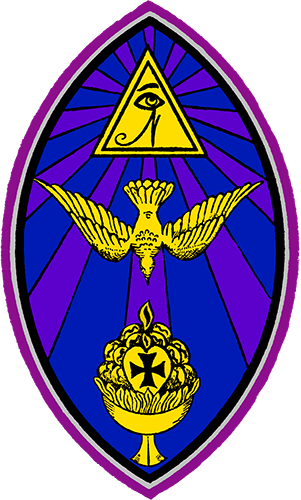
Ordo Templi Orientis
William E. Heidrick Memorial Library
III
The Hermit
I
|
Lonely, o life, art thou when circumstance Beats as if tired of life, as I am tired That you make sweet— black dogs of doubt and fear Our Lady Dian, but where hag and witch |
II
|
Like to a country in the interdict Of absence. Where’s the daily sacrament, When they would peer into beatitude. O Gods, Fates, Fiends— whoever plays the Pope! |
III
|
My soul is like the savage upland plains Cuts over them. Hardly the memory stands Its sterile death across my soul, and chills I stand— I scan the infinite horizon |
IV
|
When for an hour we met (to call it meeting One ray of saddest gladness lit the dusk: For by that sigh I knew the adorable That who would die for you, sweet murderess, |
V
|
For there you sat, you smiled, you chatted on, Its senseless clamour of necessary wit, Suppose we had risen, as quick as thought, and stood They better had take care, I think. One day |
VI
|
Yet we may hope; for this, and not from fear, Meanwhile by stealth I may invoke your shade Nay! it is more: by magic art compel Whose demon ministers through the gulphs and glooms |
VII
|
More, I will visit you, forlorn who lie Of my fine body of fire: oh! you shall feel Till, when I see you next, I shall have doubt Held hard all night, with mouths that never ceased |
VIII
|
One writes, and all is easy. Drop the pen, Like to a mother whose one child is dead The child is under ground— who comforts her? Foul curses from my life’s envenomed flood |
IX
|
As one entranced by dint of cannabis, He says one word— what countless ages pass! And travels thither in spirit. So Yet it must be, and very soon must be: |
X
|
To-morrow is the day when Christ our Lord But they must not get letters, be amused, And yet I grumble! any other day Till Christ’s affair is over, and the town |
XI
|
Were you a shop-girl and myself a clerk, This is the penalty one pays for rank Let me too weep, weep on! weep out my soul, Weep! It is better. Thus one earns a chrism— |
XII
|
Wherefore I duly will invoke the God Whose grape shall yield a bitter draught of woe Who beats her breast upon the convent bars, (Though still we were forbidden word and kiss) |
XIII
|
For truth it is, my maiden, we have had Let us then rather give the lustiest praise Of Man’s thanksgiving; from their holy place Let us, reflecting on how dear we love, |
XIV
|
Now then the fickle song hath changed and shifted We love each other! let them meditate We love each other! loud and glad; let heaven Hark! the glad chorus as we drag the stars |
Notes
IV. 7. |
Myrrh— musk.— The perfumes of Sorrow and of Lust. Many prostitutes scent themselves strongly with musk, the better to allure their unhappy victims. | |
VI. 8. |
Maid.— Proserpine, or Hecate. I think the latter, as Proserpine became wife of Hades. | |
VII. |
This disgusting sonnet seems to refer to the wicked magical practice of travelling by the astral double. | |
IX. |
Cannabis.— Indian hemp, a drug producing maniacal intoxication. | |
X. 12. |
Verlaine! Zola!— These are the vampires that suck out the virtue from our young people, the foreign corrupters of our purer manners! | |
XII. 7. |
Attis— Abelard.— “Thirst” here clearly means unhallowed lust, since Attis and Abelard were both mutilated persons. | |
XIV. 13. 14. |
What mad megalomania! |